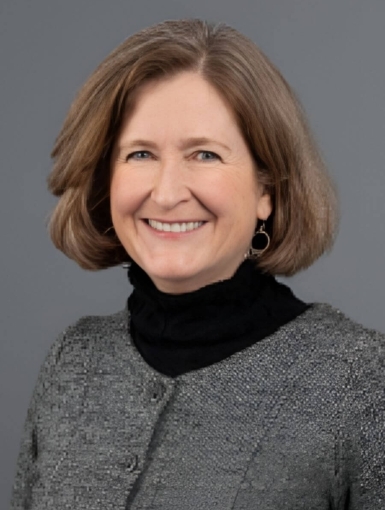
Kristin Amerling, the former chief counsel to the House Select Committee investigating the January 6th attack on the U.S. Capitol, will bring her expertise to the Institute for Public Leadership (IPL) as its inaugural public service fellow. Amerling will teach a class this fall, PLCY388M Congressional Investigations and Democratic Governance, at the School of Public Policy.
“We’re so fortunate to have Kristin join IPL,” shared IPL Director John Ronquillo. “Her unique position in that historical moment of oversight and accountability on the Hill will give students keen insights into the integrity and ethics we hope they’ll instill in their own leadership styles.”
We connected with Amerling to learn more about her congressional oversight experience, her approach in the classroom and her advice for aspiring public servants.
Given your extensive experience in congressional oversight, what do you see as the most crucial elements in ensuring effective and ethical investigations?
A foundational component of congressional oversight is commitment to the facts. I believe effective and ethical government oversight work shares a lot in common with quality journalism, as both place a premium on factual accuracy. For that reason, principles that guide journalistic fact-checking can also serve as valuable guideposts for congressional investigators, such as commitment to fairness and non-partisanship, transparency where possible about sources and methodologies, and acknowledgment of error when that occurs.
Your upcoming class, "PLCY388M Congressional Investigations and Democratic Governance," has already piqued the interest of many students. How do you plan to structure the course, and what insights can students expect to gain from it?
The course introduces students to the purpose and practice of congressional oversight. It will include readings covering the purposes of congressional oversight and the reach and limits of congressional oversight powers. Class discussions will frame these issues with video excerpts and anecdotes from high-profile investigations including the work of the House Select Committee to Investigate the January 6th Attack on the United States Capitol. Classroom work also will emphasize exercises where students tackle oversight challenges by playing the role of congressional investigators.
As someone who has navigated both the executive and legislative branches, what strategies have you found most effective in promoting transparency and accountability in government operations?
Investigative strategies vary depending on the specific goal of the inquiry and facts relating to it. However, one approach that often proves successful is to identify specific individuals responsible for overseeing or implementing the policy at issue and demand public testimony. While written responses to Congress from government agencies can be constructive, a public conversation often may yield information and accountability that may be missing from carefully crafted letters. Setting a hearing or deposition date also may provide impetus for government agencies to produce relevant documents. Beyond the power of compelling witness testimony, a commitment to fairness and factual accuracy is a cornerstone of any credible effort to promote transparency and accountability.
Throughout your career, you've been involved in a variety of high-profile investigations, ranging from the Hurricane Katrina response to the 2008 financial crisis. Can you talk about a particularly challenging career experience that has shaped your approach to public service ethics?
When I started my work as an investigative counsel, I was on the staff of Rep. Henry Waxman, who was then serving as the ranking minority member of the House Committee on Government Reform and Oversight (now called the House Committee on Oversight and Accountability). Although the minority party on a committee does not have the power to issue subpoenas or hold hearings, Rep. Waxman nonetheless directed investigative staff to use tools that were available to examine issues he prioritized.
Over the next few years, the Committee minority conducted a series of successful investigations, using publicly available information and research involving voluntary sources, to produce reports, letters, and other public briefings that generated public interest and spurred legislative change. For example, the Committee minority issued dozens of district-specific reports comparing drug prices in a district to lower costs in England and Canada, and comparing the costs of drugs used on humans with the lower costs of the same drugs used in veterinary practices. These efforts provided an important lesson for me that I want to share with students: staying focused on the possibilities offered by the tools you have rather than the limitations you face can lead to creative, constructive results.
What advice would you offer to students aspiring to make meaningful contributions to public service?
We live in a time when dysfunction and rancor in government is amplified on multiple media platforms while successful day-to-day efforts by civil servants and elected officials to collaborate and advance policies often receive little attention. Even in this environment, government positions offer tremendous opportunities for satisfying, deeply rewarding work that makes a positive impact on people’s lives.




